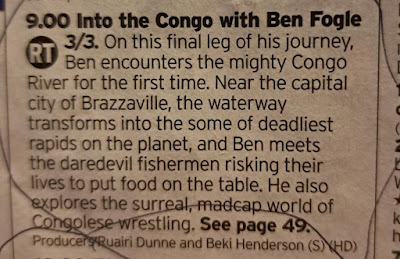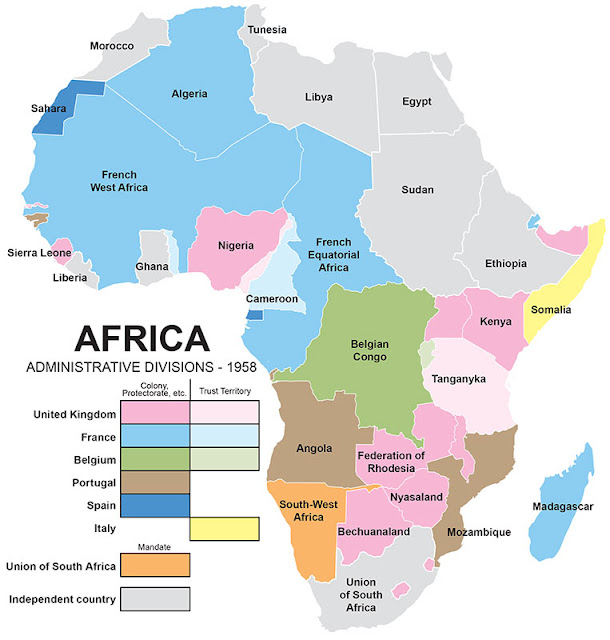08:00 Nothing gets Lois and me so excited, when we're first waking up in the morning, as a stimulating graphic image, and we know immediately that there's one coming our way when we hear my Samsung diddling and Lois's Huawei beep-beeping in sync under the bedclothes again, which is nice!
These exciting, synchronised noises coming from "way down" can only mean one thing - one of the Quora forum pundits who's on both Lois's list of favourites and mine, has come up with some "doozy" of a response to some challenging question, which is a great way to start the day.
"And what's today's big question on the Quora forum, Colin?", I hear you cry. Well, it's this old "chestnut", I'm afraid, but it still gets people going, doesn't it! And it's nice to see a stimulating and explanatory graphic on the subject from one of our favoured pundits, which somehow explains things better than a thousand words.
And this is the response that our favoured pundit Carol "C.S." Friedman gives:
Carol writes: Hawaii and Central America are not at the equator !!!
Skin colour evolved to protect human skin from UV radiation. We need some UV to produce vitamin D, but not too much or skin cancer is more likely. So [the earliest] people living in hot, sun-drenched regions had dark skin, and as humans spread out across the globe, groups that settled in areas that received less sunlight and/or were colder (because people covered up more) evolved lighter skin.
Skin colour was also impacted by diet (a diet heavy in fish provides vitamin D for some Arctic peoples) or geography or weather conditions that impact exposure to sunlight (Peoples living at very high elevations tend to be darker because their sunlight exposure is more direct.)
a typical Inuit in the Arctic regions catches a fish for his supper
- fish provide much-needed extra Vitamin D in regions starved of warm sunlight
And Carol adds: Please note, we are talking about evolution, which takes place on a vast time scale. A group moving into a new area will not immediately develop a different colour skin.
With all that as a prelude, here is a map of average skin colour. The third line down is the equator. Note that there are many places where it is as dark as in Africa, including many South Pacific islands. Hawaii, however, is not at the equator, but at the tropic of Cancer, the second line from the top. Their colouring is consistent with other groups at that latitude.
And here's Carol's "killer" graphic, which says it all, doesn't it.
And guess what? The pundit giving this measured response today is none other than our number one fantasy writer of the moment, C S Friedman, whose "Magister Trilogy" we're both getting enthralled by on a nightly basis.
Lois and I are both ardent feminists, and a big theme in the Magister Trilogy is of a futuristic society where a male-dominated "Magister" clique wields vampire-like magical powers, and who so far have enforce a "men only rule" for new apprentices, which is a tad old-fashioned and outmoded, we think!
The Magisters maintain their dominance of this futuristic society by tapping some mysterious force that no woman has ever been able to lay her hands on - until feisty young woman Kamala, hardened by her experience as a teenage whore, insists on becoming a Magister apprentice and secretly enrols herself as the first-ever female Magister.
Exciting or what haha!!!
CS Friedman's books have been described as introducing the reader to "a world of high fantasy, replete with vampire-like magical powers, erotic interludes, treachery, war, sorcery, and a draconic creature of horrific power and evil."
Did you notice how like mine and Lois's dear home life it sounds?! It could be an allegory of our life here on this Persimmon new-build housing estate in Malvern, that's for sure!
Enough said, I think !
10:00 But forget this alluring fantasy world. Let's get back to reality!
And later this morning, Lois and I are both brought down to earth with a bump, when we realise that the Persimmon building-site plumbers who fixed the leak under our new-build kitchen sink yesterday, didn't push our washing-machine back far enough under the worktop before they left for the day, so that now we can't fully open our cutlery drawer.
exclusive photo, showing the full extent that this drawer can
now be opened, following yesterday's visit by 2 burly plumbers
- the very back of the drawer is where I keep
my personal favourites as regards spoons etc, which is annoying!
What a truly crazy world we live in !!!!!
I contact Bradley, Persimmon's "Customer Care" supremo, who sends two burly builders round to push our washing machine back - "health and safety" demands that it be a two-man job - so that Lois and I can get at the whole contents of our cutlery drawer again, which is a relief.
Bradley, builder Persimmon's "Customer Care
Supremo" for this new-build housing estate
Little "pinpricks" like this are the big things in life for us, now that we've retired.
Spoiler alert: you may not have realised this, but it'll happen to YOU TOO one day, no question!
21:00 Excited by the Quora forum websites revelations about African skin-colour, and feeling like a couple of real old "Africa hands", Lois and I settle down on the couch tonight in great anticipation, to see the 3rd and final programme in the Ben Fogle,
a.k.a. "The Fogle-ator", new series,
"Into The Congo With Ben Fogle".
Dear Reader, do you ever get your "Congos" (or is it "Congoes"?) mixed up? Lois and I certainly do, but then we are 77, so we're entitled to a few "senior moments" now and then, you can't deny us that!
When Lois and I were young, in the 1950's and 1960's, there was just one Congo: something called "The Belgian Congo" and its northern neighbour was just part of the mysterious "French Equatorial Africa", as far as we can remember - "simples" !
Am I right, or am I right?
Then a few years later people started monkeying around with the names, didn't they - a recipe for disaster in our view And the former Belgian Congo has since then just made the problem worse by changing its name repeatedly since gaining independence: first it was so-called "Zaire" and later "the Democratic Republic of the Congo (DRC)", confusingly similar to the name of its northern neighbour, "The Republic of the Congo".
And it was another mistake to call it the DRC, in my view. Everybody knows that any country with "Democratic" in the country-name is cast-iron 100% certain not to be democratic - think of the DDR (German Democratic Republic) of the past. What madness !!!!
This is the map today or today-ish (I think!):
Anyway this is my chief takeaway from Ben Fogle's programme tonight: if you're ever thinking of booking an attractive-sounding holiday in the region, perhaps "Fishing the Congo River"
(e.g.courtesy of Go Fishing Worldwide Phone: 020 8742 1556), or "Canoeing the Congo River"
(e.g. courtesy of KE Adventure Travel, Tel: 017687-73966),
do make sure you're based on the north bank of the river.
Just saying! Presenter Ben Fogle tonight is based largely in and around the Congo River, which is the border between the two countries, and we hear him repeatedly being warned to stay on the north bank and not to enter the DRC at all because it's too dangerous. Yikes!
The "other Congo", by contrast is loads of "fun, fun, fun" all the way, with "dandies" - the so-called "sapeurs" - both men and women, mincing about and preening themselves on the streets of the capital Brazzaville, plus wrestlers with dyed hair who win bouts more by how much they can "magic" their opponents into a zombie-like inertia than by anything remotely resembling a half-nelson or any physical malarkey of that nature, which is nice!
Tonight presenter Ben Fogle is particularly taken by Brazzaville's fashion-conscious "sapeurs" and the flamboyant street-shows that they put on.
And as Fogle points out, the remarkable thing about this phenomenon is that these people don't have a lot of money, but they are still joyfully determined to make the most of what they do have.
What an unexpected kind of a street show, isn't it, and of a kind that Lois and I would never in - like - a billion years (or even more maybe!) - have expected to see in an African travelogue series. It
is a bit weird isn't it, not to say surreal, even - be fair!
However, as Ben points out, it's in a way the Congolese wanting to hang on to some of their French colonial legacy.
Lois is often critical of my non-existent "dress-sense" and the monotony of my so-called "outfits": the same old boring shirts, trousers, jeans etc that I cycle through, and I sense that she's secretly hoping that I'll pick up a few pointers tonight, from these Congolese "sapeurs".
Meanwhile Ben continues his admiring eulogy...
Ah socks! Now you're talking! And I think even Lois sometimes acknowledges my so-called "socks appeal", which is well-known in our house, and is often a talking-point with visitors, if the conversation starts to "flag".
flashback to June 2021: the first time I wore these
navy-blue socks with the red dots - remember?
Flashback to 2017: the attractive "singing" "Quiet Reflection"
Danish musical socks, which our daughter Alison, then living in
Copenhagen, gave me as a Christmas present.
flashback to Christmas Day 2019: me showcasing
the box of "fashion socks", again given me by our daughter Alison
I think I've made my point, don't you!
[I'm going to say 'yes', but only to get you to please "move on!" - Ed]
Later presenter Ben watches a "magic wrestling" bout in Brazzaville, - "magic wrestling" is the Congo's top sport.
And you know, as I say to Lois after the programme finishes, haven't these Congolese in a funny kind of a way somehow stumbled on the secret of life?
You know - they've created a society where there's no shame in showcasing your maybe slightly flamboyant socks, and at the same time limiting all sports events to about 2 minutes max - just enough time, in other words, for the winning player to hypnotise his opponent or opponents before they hypnotise him, and then - bingo - it's all over.
Isn't that what life is all about, or should be about?
And aren't there some pretty obvious implications here for other sports? A time-consuming 5-day international cricket match, for instance, could, if played under "Magic Cricket Rules", take up a max of say, only 12 - 15 minutes, with enormous benefits for mankind in all the British Commonwealth countries.
an AI-assisted vision of what the 5-day cricket match of the future
could look like, if played under "Magic Cricket Rules",
ending early after only 10 minutes, say, if one of the two teams
became hypnotised, and was unable to carry on
I wonder.....!
22:00 We go to bed - zzzzzzz!!!!!














































No comments:
Post a Comment